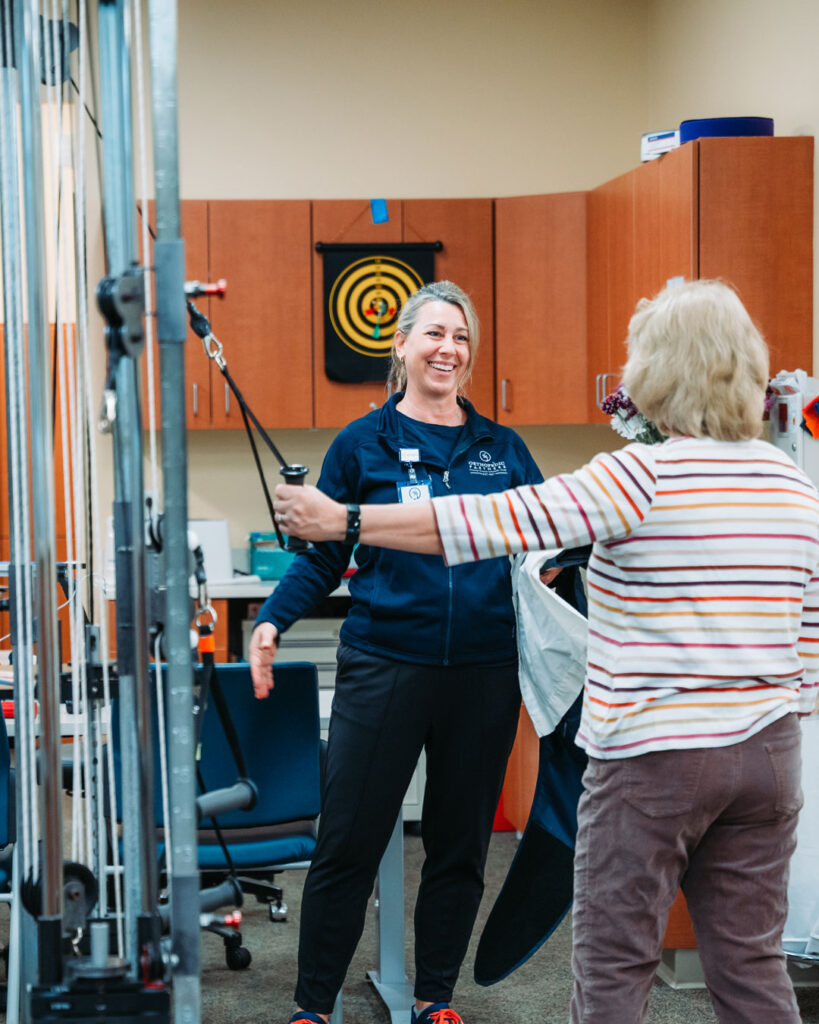A Complete Guide To Feeling Ready For Your Orthopedic Surgery
Table of Contents
Preparing for surgery can be daunting, and it’s normal to have many questions and feel a bit overwhelmed. So, consider this blog your go-to guide, where we break down the need-to-know info and offer handy tips to ease your mind and prepare your body. We’ll be discussing all the essential stuff – what to do before surgery, how to manage those pre-surgery jitters, what to eat, and how to get set up for a smooth recovery post-surgery.
We understand that everyone’s journey is unique, and we aim to create a space where you can find support, advice, and friendly conversation to empower you every step of the way.
Whether you’re dealing with an old sports injury, managing the wear and tear of arthritis, or facing any other bone or muscle-related challenge, our goal is to make the path to surgery as smooth as possible for you. So, grab a cup of tea, get comfy, and let’s dive into the world of preparing for orthopedic surgery together!
Pre-Surgery Timeline
4-6 Weeks Before Surgery
Initial Consultation and Decision Making: Meet with your surgeon to discuss surgery options, benefits, risks, and recovery. You’ll decide and schedule your surgery date.
Insurance and Financial Planning: Confirm insurance coverage and understanding out-of-pocket costs. Our financial team is happy to help you understand your benefits, but it is important to confirm your individual insurance coverage so there are no surprise fees.
Health Optimization: Optimizing your nutrition and exercise prior to surgery will give your body the best chance for a successful outcome. Eating a balanced, nutritious diet, incorporating moderate exercise, and working with a physical or occupational therapist on pre-surgery exercises (pre-hab), all play a major role in your surgical outcome.
3 Weeks Before Surgery
Detailed Surgical Plan: Meet with your provider to review the details of the surgical procedure. Discuss anesthesia options and any concerns you might have about your postoperative care.
Preoperative Testing: Make sure you schedule and complete any necessary blood tests, imaging studies, or other required tests. This is critical for surgical safety.
Lifestyle Adjustments: Possibly adjusting medications and supplements. Limiting alcohol intake and quitting smoking are two personal commitments you can take to set your post-surgical self up for an easier recovery.
2 Weeks Before Surgery
Home Preparation: Organizing your home for post-surgery recovery, e.g., arranging for easy access to essentials, and setting up a comfortable recovery area.
Arrange Support: Coordinate with friends or family for assistance post-surgery. Scheduling time off work and arranging transportation ahead of time can help you reduce your stress and limit
1 Week Before Surgery
Final Consultation: Address any last-minute questions or concerns with the surgeon or medical team.
Packing for the Hospital: Prepare a bag with necessary items for your hospital stay. Comfortable and loose clothing and shoes will give you and your care team an easier time
Mental Preparation: Use relaxation techniques to manage anxiety, such as meditation or deep-breathing exercises. We share a few of these below
Day Before Surgery
Preoperative Instructions: Follow specific instructions regarding food and drink intake Review and confirm transportation and arrival times for surgery.
Relax: Getting a good night’s sleep, watching a comedy, connecting with loved ones, and spending some extra time with your pets are all great ways to reduce your nerves and stress prior to surgery. Nerves are normal, and you will get through your surgery
Day of Surgery
Hospital Arrival: Arrive at the hospital at your scheduled time so you can completing any required paperwork and preoperative assessments.
Meeting the Surgical Team: You will meet with a member of your surgical team and anesthesiologist before surgery. Here they
Summary
This pre-surgery timeline serves as a general guideline, detailing various steps, preparations, and considerations leading up to orthopedic surgery. Adhering to this timeline can facilitate a smooth surgical experience and contribute to optimal postoperative outcomes. Every individual’s journey may vary, and it is crucial to maintain open communication with healthcare providers to address any unique needs or concerns.

Preparing Your Home
Making a Cozy Recovery Spot
Find a quiet place where you can rest peacefully. Make it super comfortable with lots of pillows and blankets. If your bedroom is upstairs and might be difficult to reach, think about setting up a temporary sleeping spot on the first floor. This is particularly useful for lower body and spine surgeries, where stairs can increase your risk of falling.
Keeping What You Need Close at Hand
Keep things you use a lot within arm’s reach to limit unnecessary movement. This includes things like your remote control, medicines, and drinking water. Think about keeping a small fridge or cooler filled with your favorite snacks and drinks nearby so you don’t have to keep going to the kitchen.
Making Your Home Safer
Clear your walkways of any objects that could make you trip, like cords or rugs, and keep your home tidy to prevent mishaps. It’s a good idea to put safety bars and non-slip mats in your bathrooms to avoid accidents. Make sure your home is well-lit, especially on the way to the bathroom.
Collecting Supplies
Stock up on medical supplies you might need, like bandages, pain relief medicine, and gauze. Make sure you have plenty of groceries and meals that are easy to make. Healthy snacks

Preparing Your Body: Maximize Your Outcome with Prehab
Prehabilitation, or Prehab as it is commonly referred to, is a proactive approach that prepares your body for the rigors of surgery, improving your recovery process and post-surgery outcomes.
Imagine this – you’re a marathon runner. Would you just turn up on race day without any prior training? Of course not. You’d train, build your stamina, strengthen your muscles, and mentally prepare yourself for the race. The same goes for surgery. Prehab is essentially your training program before the ‘big race’.
How does prehab work?
Prehab is preparation work you can do to get your body ready for surgery. This may be physical to improve your fitness, or it can be psychological to prepare your mind. About 1 month of exercise can help improve physical fitness. So you can plan an exercise program ahead of surgery. Training before joint surgery can involve:
- Muscle strengthening
- Stretching
- Range of motion exercises
- Aerobic exercise (like cycling)
- Balance and gait training
The benefits of prehab extend across diverse surgeries, from joint replacements to cancer operations. Incorporating both aerobic exercises and resistance training, prehab enhances your physical fitness, reducing complications and shortening hospital stays. In some instances, like knee replacements, prehab has proven so effective that nearly 20% of patients were able to cancel their surgery.
In some cases, prehab can also minimize the need for post-operative rehab facilities. Take hip replacements for example – after six weeks of prehab, patients were more likely to return home post-surgery instead of heading to a rehab center.
Prehab isn’t a one-size-fits-all solution, though. Your health condition, pain threshold, and post-surgery goals are unique. Following along with your home exercise program and creating a relationship with your physical therapist, occupational therapists, massage therapists, and other providers (chiropractors, massage therapists, nutritionists, personal trainers, etc), can help you have a smooth transition from pre-surgical exercises to post-surgical strengthening.

Preparing Your Mind
Getting Help
One of the first things we encourage our patients to do before surgery is establishing a support circle. Arrange for family or friends to help you with chores like cooking, cleaning, and driving you around so you know you won’t be alone after your procedure.
If it feels difficult to ask for help from your immediate family and friends, you might want to hire professional help or a home care nurse, especially for the first few days after your operation. These professionals can also help explain to your friends and family the specifics of your post-op surgery care needs.
Remember – your friends and family will benefit from having a healthy YOU in their life and want to support your recovery.
The Power of Mindset
An integral part of surgery preparation goes beyond the physical. The mind, a powerful tool, plays an instrumental role in ensuring a successful surgical experience and recovery. Mental preparation, through various relaxation techniques, can effectively manage pre-surgery stress and anxiety, significantly influencing your overall surgical journey and recovery process.
- Harnessing the Power of Deep Breathing
Deep breathing exercises aren’t just simple techniques—they’re a gateway to tranquility. The process, which involves slow inhales through the nose, a brief pause, and gradual exhales through the mouth, serves as an internal pacifier, calming the mind and alleviating stress.
- Finding Calm Through Progressive Muscle Relaxation
Progressive Muscle Relaxation is more than just tensing and relaxing your muscles—it’s a journey through your body, acknowledging each muscle group, and consciously releasing accumulated tension. Try following along with examples for muscle relaxation of online videos or work at your own pace. this process not only promotes physical relaxation but also a sense of mental peace.
- Creating Peace with Guided Imagery
Guided Imagery is your personal mental spa. By closing your eyes and conjuring an internal landscape of peace and serenity, you can effectively distract your mind from the impending surgery and transport it to a tranquil environment—resulting in significant stress reduction.
- Staying Present with Mindfulness Meditation
Mindfulness Meditation isn’t just about being present—it’s about embracing the present with acceptance. Focusing on your breath, observing thoughts and sensations without judgment, and continuously steering your attention back to the present can greatly reduce anxiety levels.
- Distractions: Simple Yet Effective
Investing time in activities that bring joy to your heart can serve as a powerful distraction. Whether it’s getting lost in the world of a good book, immersing yourself in a captivating movie, or indulging in a hobby, these simple joys can provide a respite from anxiety.
- Sleep Hygiene: The Unsung Hero
Sleep hygiene isn’t just about getting enough sleep—it’s about quality rest. From maintaining a regular sleep schedule to creating a conducive sleeping environment and establishing a calming bedtime routine, good sleep hygiene can be a game-changer in stress management.
- Aromatherapy: The Soothing Scent of Relaxation
Aromatherapy isn’t just about pleasant smells; it’s about creating a soothing atmosphere that promotes relaxation. Scents like lavender and chamomile can serve as a comforting background, helping to alleviate stress and anxiety.
Preparing for orthopedic surgery might seem like a monumental task, filled with uncertainty and myriad details. However, by organizing your thoughts, breaking the process down into manageable chunks, and proactively addressing each aspect of preparation, you can significantly alleviate stress and set yourself up for a successful surgical outcome and smooth recovery.
This guide has walked you through a comprehensive pre-surgery timeline, strategies for preparing your home and mind, and holistic approaches to preparing your body. Whether it’s creating a conducive recovery environment, embracing prehabilitation exercises, or cultivating a resilient mindset through relaxation techniques, each step you take contributes to a more seamless surgical journey.
Remember, the path to recovery begins well before you step into the hospital. It’s the positive, proactive steps that you take now that lay the foundation for a swift and robust recovery. Keep close communication with your healthcare providers, reach out for support when needed, and most importantly, invest time in self-care and mental well-being.
Your journey might be unique, filled with individual challenges and experiences, but you’re not alone. Embrace the journey with an open mind, a prepared body, and a supportive environment, and you’ll be well on your way to regaining your mobility and enjoying a pain-free life.


1 thought on “Preparing for Surgery A Complete Guide”
It was helpful to learn that lifestyle adjustments are arranged 3 weeks before surgery, such as adjusting the intake of medications and limiting alcohol consumption to set up an easier recovery later on. It seems like my uncle is set to have colon surgery next month once he finds a health center for it here in Hudson. I’ll take note of this while I look for a general surgical service in Hudson to recommend to my uncle for his colon surgery soon.